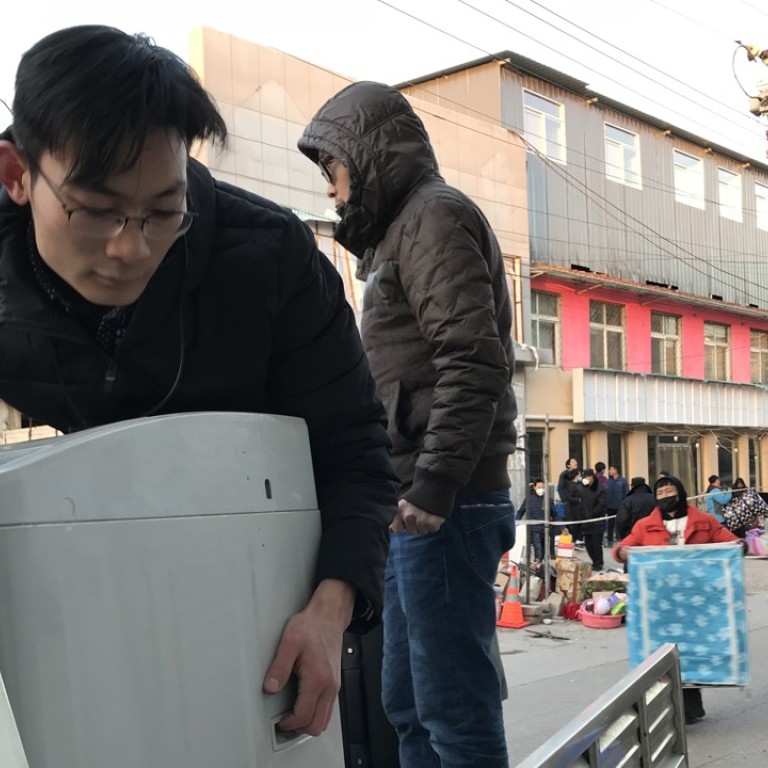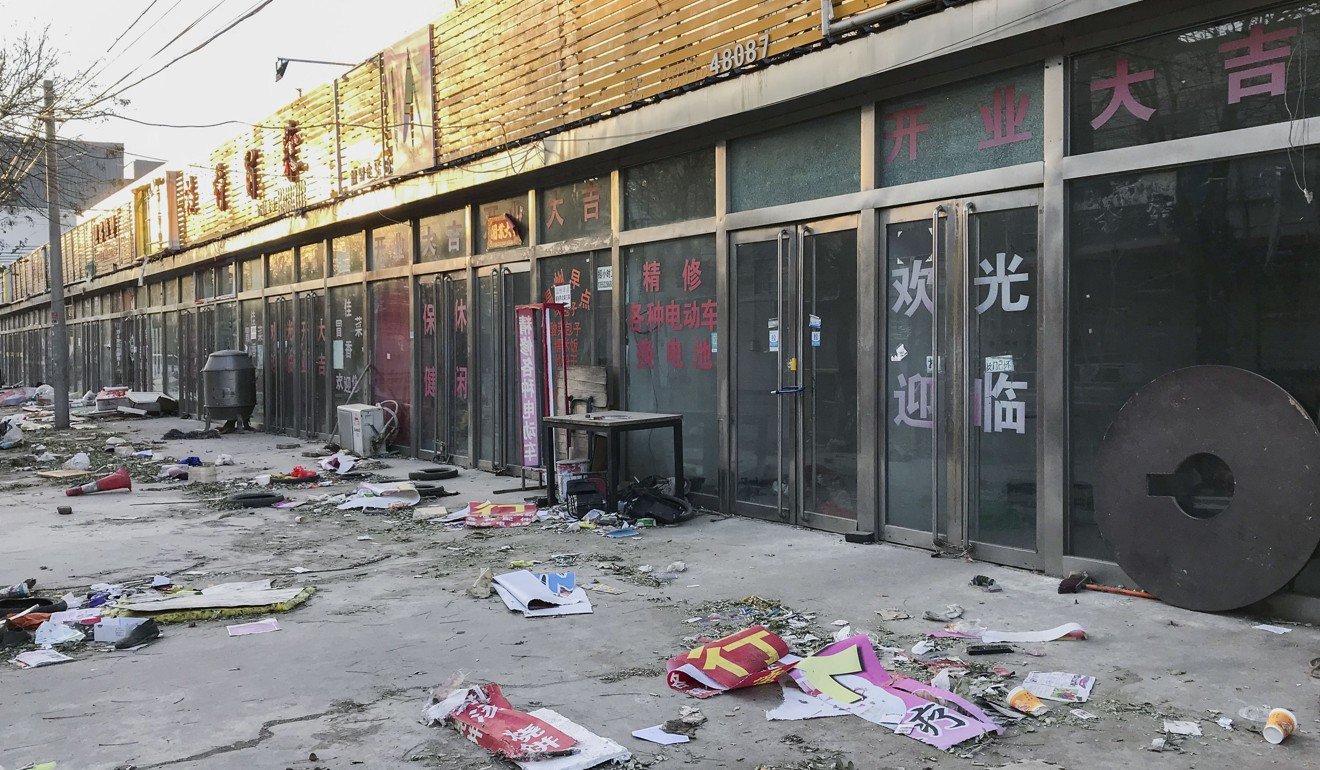
Welcome to Beijing: where helping the homeless can get you evicted
Chinese migrant worker Yang Changhe lost the roof over his head when he tried to help those suddenly forced out by a government crackdown on safety
When Yang Changhe decided to help migrant workers thrown out of their homes in a citywide safety crackdown in Beijing, he didn’t expect it would end in his own eviction.
Yang, who moved to the Chinese capital from Hunan in 2009, ran a drop-in centre for other migrants in his spare time and was one of many members of the public who rallied to help the tens of thousands of people given just days – and in some cases hours – to leave their homes on the fringes of the city.
“I saw there were so many people desperately in need of help, and I just wanted to do something for them,” he said.
The migrants were evicted as part of a 40-day campaign launched last week to address safety threats in the aftermath of a residential fire that killed 19 people this month.
The campaign corresponds with a bigger push over the last year to limit the size of Beijing’s population, a drive that has involved shutting down wholesale markets and warehouses and clearing slum areas.

The municipal authorities have denied the most recent sweep targets the so-called low-end population of migrant workers and their families, insisting the main goal is to tackle threats from unlicensed buildings.
But the effect has been to force men, women and children onto the street at the start of winter.
That prompted Yang, 43, to swing into action. In March he had opened the drop-in centre called Tongzhou Home, meaning “in the same boat”, providing a range of free services such as movie nights, haircuts and table tennis for migrant workers – all supported by donations from the public.
On Friday afternoon he posted a notice online offering displaced people the chance to store luggage or stay the night at the centre. He also urged people with a car to help.
That night, as he waited for word to spread, Yang was visited by police officers who told him to cease and desist. The officers watched as he deleted the online appeal, returning the next day to tell him to shut down Tongzhou Home.
“They said I wasn’t certified to take in the workers, because I’m not running a guest house or hotel,” he said.
In the meantime he fielded more than 20 offers for help – each one of which had to be turned down because of the police.
The Majiqiao police station and the Tongzhou district public security bureau could not be reached for comment on Sunday.

Similar appeals have disappeared from the accounts of other not-for-profit groups, including the Illness Challenge Foundation registered with the Ministry of Civil Affairs.
Through its public WeChat account on Friday, the foundation offered to store luggage for workers with rare diseases and help them find new accommodation. The post has since been deleted because it “violated regulations”, according to an online notice.
A catering industry group also called on restaurants to use its account to post job openings for migrant workers on Friday, attracting job offers at more than 500 restaurants until the section was closed down.
Just days old, another group called Warm Beijing saw its posts deleted, according to a volunteer.
The hardline official approach comes as authorities continue to narrow the space for civil society by cracking down on rights groups and introducing legislation to exert tighter control over the sector.
Back at his rented home above the closed drop-in centre on Sunday night, Yang had packed up his belongings and was ready to move out, ordered to leave in yet another visit by the police. He said he would stay at a friend’s place before looking for a new home for himself and his community endeavour.
“I’ve worked in a factory, been a street vendor, and run a few small businesses – I know how hard it is [to be a migrant worker],” he said.
“I don’t regret [helping them]. It was the right thing to do and there is nothing to regret.”

